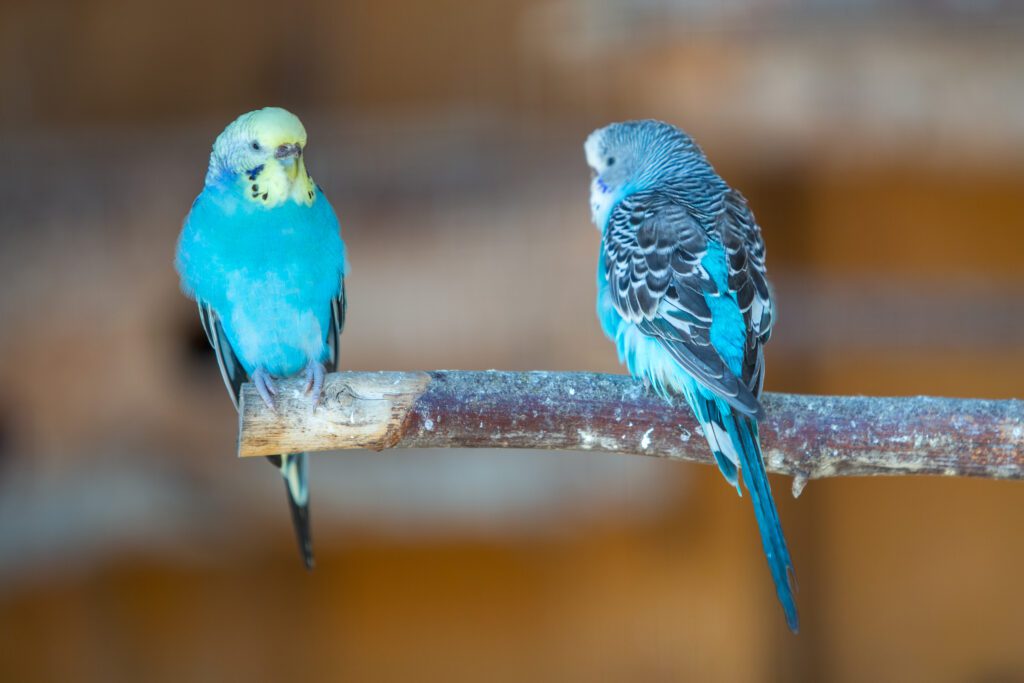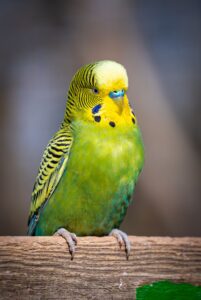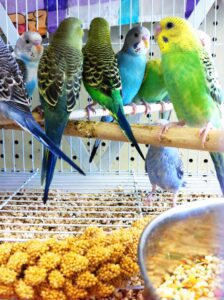What Is a Budgie? Complete Beginner’s Guide
- Admin

Categories
Don’t miss our future updates!
Get Subscribe today!
If you’ve ever considered getting a pet bird, the Budgie (also known as the Budgerigar or parakeet) is one of the most popular options for beginners. These small, colorful birds are not only adorable but also intelligent, social, and relatively easy to care for. In this comprehensive guide, we’ll dive into everything you need to know about Budgies – from their characteristics and behavior to their diet, care requirements, and cost. Whether you’re a first-time bird owner or simply curious about these delightful creatures, this guide will answer all your questions.
What is a Budgie?
A Budgie (scientifically named Melopsittacus undulatus) is a small species of parrot that is native to the grasslands of Australia. Known for their playful and social nature, Budgies are often kept as pet birds in households worldwide. They’re also called parakeets, although the term “parakeet” can refer to a variety of small to medium-sized parrots, while Budgie specifically refers to this species.
Budgies are a great choice for beginners because they’re relatively easy to care for and have engaging personalities. These birds are known for their ability to mimic sounds and even human speech, making them a favorite for those who enjoy interacting with their pets.
Budgie Characteristics
Size and Weight
 Budgies are small birds, typically measuring between 7 to 8 inches in length from beak to tail. They generally weigh around 30 to 40 grams. Despite their small size, Budgies are active, curious, and can be quite noisy, especially when they are happy or excited.
Budgies are small birds, typically measuring between 7 to 8 inches in length from beak to tail. They generally weigh around 30 to 40 grams. Despite their small size, Budgies are active, curious, and can be quite noisy, especially when they are happy or excited.
Colors and Appearance
Budgies come in a stunning array of colors, including green, yellow, blue, and even white and purple variations. Their bright plumage is often striped, particularly on their backs, which gives them a distinctive look. While the wild Budgie is primarily green, pet Budgies come in many color morphs, thanks to selective breeding.
Lifespan
A Budgie’s lifespan typically ranges from 5 to 10 years when kept as a pet, though some may live even longer with excellent care. Wild Budgies tend to have shorter lifespans due to predators and environmental factors. However, proper care can help ensure that your Budgie thrives for many years.
Social Behavior of Budgies
Budgies are highly social birds that thrive in environments where they receive plenty of interaction. In the wild, Budgies live in large flocks, and they maintain a close bond with other birds. This social nature translates well to being pet birds since they often form strong relationships with their owners.
If you have more than one Budgie, they will likely bond with each other and provide companionship. However, it’s essential to interact with your Budgie daily to ensure they are well-adjusted and don’t become shy or skittish around humans.
Communication and Mimicry
One of the most charming traits of Budgies is their ability to mimic sounds. While not all Budgies will talk, many will learn to mimic words, sounds, and even tunes with time and patience. Budgies can also chirp, whistle, and make a variety of other sounds to communicate, making them quite entertaining to have around.
How to Care for a Budgie
Taking care of a Budgie involves ensuring it has the right diet, a proper cage, and regular mental stimulation. Let’s break down what you’ll need to keep your Budgie healthy and happy.
1. Cage Requirements
When choosing a cage for your Budgie, it’s essential to select one that’s spacious enough for your bird to move around comfortably. A cage that’s at least 18 inches long, 18 inches deep, and 24 inches high is ideal for a single Budgie. Horizontal space is more important than vertical space, as Budgies love to fly and perch on various levels.
2. Diet: What to Feed Your Budgie
Budgies have specific dietary needs, and providing the right food is crucial for their well-being. Their diet should primarily consist of seeds, pellets, fruits, and vegetables. Here’s a more detailed breakdown:
Seeds: Budgies love a variety of seeds, including millet, canary seed, and sunflower seeds. However, seeds alone aren’t enough for a balanced diet, as they are low in nutrients.
Pellets: It’s a good idea to incorporate pellets into their diet, as they provide a more balanced and complete nutrition than seeds alone.
Fresh Fruits and Vegetables: Offering fresh fruits like apples, grapes, and oranges, as well as veggies like carrots and spinach, ensures they get essential vitamins and minerals.
3. Water and Hydration
Make sure your Budgie has access to fresh, clean water every day. Changing the water daily is essential to keep your bird hydrated and healthy.
4. Regular Exercise
While Budgies can get plenty of exercise inside their cage, it’s also important to give them time outside of the cage to fly around in a safe, enclosed space. This helps them stretch their wings, burn off energy, and stay healthy.
5. Grooming and Hygiene
Budgies are relatively low-maintenance when it comes to grooming, but they will need regular care to stay clean and healthy. Some Budgies like to bathe in shallow water, while others may need you to gently mist them with water to keep their feathers in top condition.
Common Health Issues in Budgies
Like all pets, Budgies can experience health problems. Respiratory infections, feather plucking, and obesity are some common concerns for pet Budgies. Regular vet check-ups, a clean living environment, and proper nutrition can prevent most of these issues.
Talking and Mimicry Abilities
One of the highlights of owning a Budgie is its ability to mimic speech and sounds. While not all Budgies will talk, many can learn a few words or phrases, especially if trained early. Some Budgies are natural talkers and can even learn to sing entire songs or mimic household noises.
If you’re hoping for a talking Budgie, be patient and consistent with training. Use repetition, and reward them with treats when they mimic sounds or words correctly.
Cost of Owning a Budgie
Initial Purchase Cost
The cost of a Budgie can vary depending on where you get it from and the color or type of Budgie you choose. On average, a Budgie may cost between $10 and $50. Some rare color morphs or specially bred Budgies can be more expensive.
Ongoing Costs
Owning a Budgie also comes with ongoing costs for things like food, cage maintenance, toys, and vet visits. The monthly cost of caring for a Budgie may range from $20 to $50, depending on the type of food you buy and any necessary health care.
The total cost of ownership throughout a Budgie’s life can range from $300 to $500 or more.
Budgies as Pet Birds: Why They’re Ideal for Beginners
Budgies are often recommended as one of the best small pet birds for beginners. They are friendly, low-maintenance, and adaptable to different living conditions. Plus, their ability to mimic speech and interact with humans makes them especially engaging for families or individuals looking for a fun and interactive pet.
Budgie Care for Beginners
For first-time bird owners, Budgies are an excellent choice. They don’t require a lot of specialized equipment or care, and they are generally very forgiving if you make mistakes. They also have a relatively short lifespan, which means you can experience the joy of pet ownership without the long-term commitment of a larger bird.
Best Pet for Small Spaces
Because of their small size, Budgies don’t require a lot of space. This makes them ideal for apartment dwellers or people who live in smaller homes. As long as they have a spacious cage and regular opportunities for exercise, Budgies can be content living in small spaces.
Summary of Key Takeaways
- Budgies, also known as parakeets, are small, social, and intelligent birds that make great pets for beginners.
- They come in a variety of colors and have a lifespan of 5 to 10 years.
- Budgies need a spacious cage, a balanced diet including seeds, pellets, fruits, and vegetables, and daily social interaction.
- Regular vet check-ups and a clean environment help prevent common health issues.
- The cost of owning a Budgie includes the initial purchase, ongoing food, and maintenance expenses, but it is generally affordable.
If you’re considering a Budgie as your next pet, you’ll find that they are affectionate, fun, and relatively easy to care for. With the right setup, these little birds can bring joy to your home for many years.
Recent Posts
How Long Do Budgies Live? Lifespan in Captivity vs. Wild
About us

We believe that owning a pet bird should be joyful, educational, and fulfilling. That’s why we’re building a library of helpful guides, health tips, training techniques, and care routines — all tailored specifically for budgies.
News Letter
Don’t miss our future updates!
Get Subscribe today!
© 2025 – Budgie Planet – All rights reserved.
